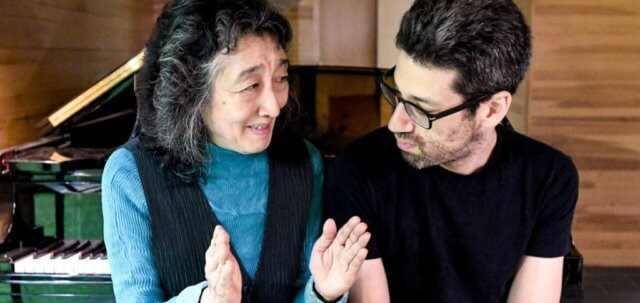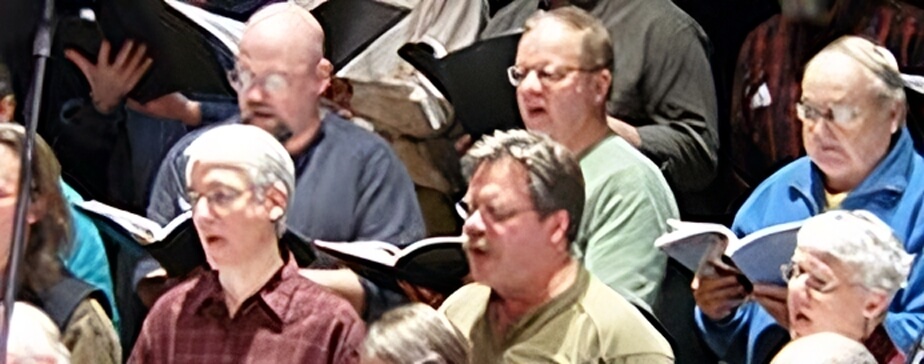Can a rehearsal be better than a concert?
 Can a rehearsal be better than a concert? You be the judge!
Can a rehearsal be better than a concert? You be the judge!
Every summer since 1951, the world-famous Marlboro Music Festival takes place in my small Vermont hometown. Last week my wife and I attended the free morning rehearsals for two pieces of chamber music — Mozart’s Horn Quintet and Dvořák’s Piano Trio No. 3 — played at the formal concert that afternoon.
The rehearsal
Around twenty-five people showed up in an auditorium that, in a few hours, would be filled with hundreds. We could sit anywhere! Naturally, we chose front row center.
Earlier Festival rehearsals are held in classrooms scattered around the Marlboro College campus. Many years ago, when I taught at the school, I’d wander around during the summer and hear beautiful scattered fragments of music. Auditorium rehearsals are the last before the performance, so they tend to contain long stretches of music, punctuated with only a few pauses and occasional repetitions at the ends of movements.
This rehearsal was no exception. The artists played both pieces with little interruption. They conferred with each other on stage, but we couldn’t easily hear what they were saying.
After the rehearsal, we noticed that several friends were present, and it was easy to stroll over and spend some time chatting.
Rehearsal versus concert
It’s interesting to compare the rehearsal and concert experiences. I think many listeners would agree that rehearsals are primarily about the music, though some rehearsals I’ve attended at other venues have offered fascinating glimpses into how musicians think and work together.
Concerts are, hopefully, primarily about wonderful performances of great music too, but they are also social events. Sometimes, I admit, I find the social aspects distracting and/or detracting from the performance. Audience coughs, rustling, and occasional clatter are inevitable. Navigating my way through crowds to take my seat, get a drink during intermission, or leave when the concert is over is sometimes irksome.
Paradoxically, we met and chatted with more friends at the rehearsal than we’d probably have at the concert, where it’s harder to physically move near people who you know.
Listening to a breathtaking musical performance with hundreds of others is also a unique experience, with the loud applause and, sometimes, standing ovations emphasizing the depth of feeling that the audience collectively shares and of which you are a part. The rehearsal, in contrast, is a subdued affair, with each audience member individually responding to the music and the performance.
Which is “better”? I’ll leave that as an exercise for you. (Feel free to share your perspective in the comments.)
Final thoughts — a performer’s perspective
For a dozen years, I sang tenor with the Brattleboro Concert Choir. This involved many weekly rehearsals, followed by just two or three public performances. Like all musicians, we spent far more time rehearsing than performing.
As a performer, I learned the wisdom of a mantra that has stood me in good stead over the years — after I slowly and painfully acquired it. “Process not product!” The frustrating, time-consuming, and taxing process of learning your part in a majestic piece of music and working to sing it really well with others is valuable in itself. Though there is the bonus of finally performing publicly to an appreciative audience, I did not spend my time and effort to be rewarded with applause. I rehearsed mightily because I love to sing for or with others. That, as an amateur musician, is sufficient reward.
Photo attribution: Mitsuko Uchida & Jonathan Biss from Marlboro Music

 For the last three months, I’ve been rehearsing for the
For the last three months, I’ve been rehearsing for the